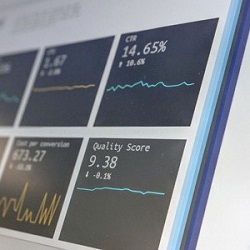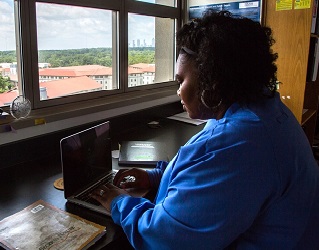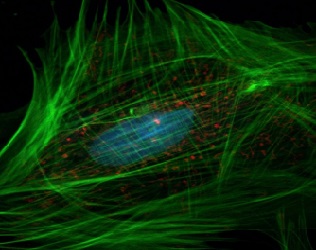Informatics Core Services
The Medical Imaging, Informatics, and AI Core support Emory investigators and the wider Georgia research community through the Georgia CTSA by obtaining access, curating data, analyzing data, and creating novel informatics and AI/ML solutions for single or multi-center studies. The Core consists of a team of engineers, data scientists, and clinicians working together to provide expertise through an array of services, including but not limited to informatics architecture design, the processing of data, real-time data flows, grant generation, machine learning model development, and more. Each of the services may be tailored to fit the individual needs of each investigator. Please contact us at ci.core@dbmi.emory.edu with inquiries.
Informatics Service Descriptions
The Informatics program offers various types of consulting, data extraction, and data analysis service support.
SpringBoard
A consulting service for investigators seeking insight and input on acquiring, storing, and using data in their investigations. SpringBoard provides insight into self-management and core service recommendations to ensure that investigators are appropriately resourced to complete their study with adequate support and statistical power. SpringBoard consultations provide the maximum benefits during the conceptualization phase of a study but are also available throughout an investigator’s work whenever data issues arise.

Cohort Count
The CohortCount service assesses patient population size at Emory and affiliated facilities matching the proposed study design of the investigators. This service is designed for an investigator who may have an idea for a study but does not have the ability to determine whether there is a sufficient patient population to conduct the study. The Core’s CohortCount service provides guided, consultative acquisition of a total number of candidate patients for such a study based on multiple variables such as those available in the EMR or other clinical databases. Facilities accessible through this service include Emory Healthcare, Children’s Healthcare of Atlanta, Grady Memorial Hospital, and the VA.

GrantGen
This service provides researchers with tailored text for grant proposals and project reports on Biomedical Informatics pipelines, including data acquisition, processing, infrastructure, and relevant statistical summaries.

Project Management
Project management services specialize in planning and coordinating project activities, including core service activities, according to project-specific requirements and constraints, tasks, and timelines. Project management services are available for the project lifecycle from conceptualization to completion, in part or in its entirety.

DataDig
The DataDig service is designed to assist investigators with data extraction from clinical databases in a collaborative effort with the information technology departments at each health system and the clinical domain experts. Extracting data from EMRs and other clinical databases is a complex and arduous task often requiring extensive amounts of time, technical credentials, familiarity with medical data, and specific knowledge of research activities. This service addresses these challenges through collaborations with clinical investigators at each facility that are charged with being liaisons to such data and BMI staff dedicated to extracting, collating (and deidentifying data if appropriate) as required. There is often the need to merge data from multiple sources prior to analysis. This can be the simple integration of data from two separate EMRs or a more complex integration involving external non-medical data sources. The data integration component (formerly DataWrangle) of the DataDig service provides the necessary insight to generate comprehensive datasets from multiple entities that are ready for cleaning and analysis. It also provides services such as normalization, ontology encoding, deidentification, and advice on encoding, representation, and informatics pipelines, including cloud services. Once a dataset has been fully extracted and created there are frequent concerns regarding elements that are erroneous, improperly converted, or difficult to interpret. This service may also include deidentification. The data cleaning component (formerly DataDetox) of the DataDig service provides necessary insight and technical expertise in cleaning the data using the expertise of a combination of clinicians, research investigators, and staff.

DataGrab
Sometimes investigators need data from devices or resources beyond standard medical databases, such as from wearables, mobile phones, social media, enduring sensors, etc. The DataGrab service is designed to address these situations. Using Core resources, BMI staff and investigators are able to extract and develop comprehensive datasets from diverse data sources.

RealTime Data
Although many investigations are amenable to retrospective data or data archived in various sources, there are some situations in which data must be aggregated and presented in near real-time. This includes enrollment in clinical trials or testing of new technologies/informatics methods. The RealTimeData service provides the necessary staff to develop, implement, and support such systems for research and development purposes.

Synthetic Data
It may be impossible to use only data extracted from eMR and related data sources due to security and privacy constraints, particularly in small patient populations leading to high re-identification risks, or due to constraints in the study design and regulatory approval. The Synthetic Data Service creates artificially generated datasets based on specified data distributions. Such synthetic datasets may be used independently or as a supplement to real datasets, and are well suited for the development and testing of computational methods including AI/ML modeling, and as an alternative to de-identification for data sharing.

DataHack
BMI faculty and staff represent a valuable resource of state-of-the-art knowledge in the analysis of medical data, ranging from the application of signal processing to deep learning. This service provides advice on which experts to work with and potential techniques to employ on data.

ML Algorithm Development
The Core, in conjunction with BMI faculty and staff, has extensive AI and ML expertise. The ML Algorithm Development service provides customized algorithm development capabilities, as well as deployment for EPIC.

Visual Analytics
The Visual Analytics service creates a bespoke user interface and dashboard for projects, to effectively present and visualize the raw and processed data as well as AI/ML output. The service provides static and dynamic data summary and visualization, as well as interactive domain-specific data rendering, for example, image viewing.

App/Backend Development
Development services can assist researchers by providing full stack (mobile application + web dashboard + backend) development services. Our team of software developers and project managers can also provide related services such as initial consultation, prototyping/conceptualizing, and project management during the duration of our development.

Infrastructure Support and Maintenance
The Infrastructure Support and Maintenance service provides hardware and software management support, in coordination with BMI IT support and Emory OIT. The core provides services ranging from hardware and software recommendations for application deployment and configuration to hardware and software licensing cost estimates, deployment, and maintenance. We have expertise in working with physical as well as virtualized hardware such as VM and containers, data storage, OS and application deployment and maintenance, and CPU and GPU high-performance computing, both on-prem or in-cloud. The core in addition provides data upload service, at regular intervals or on-demand, for projects with data sharing requirements.
